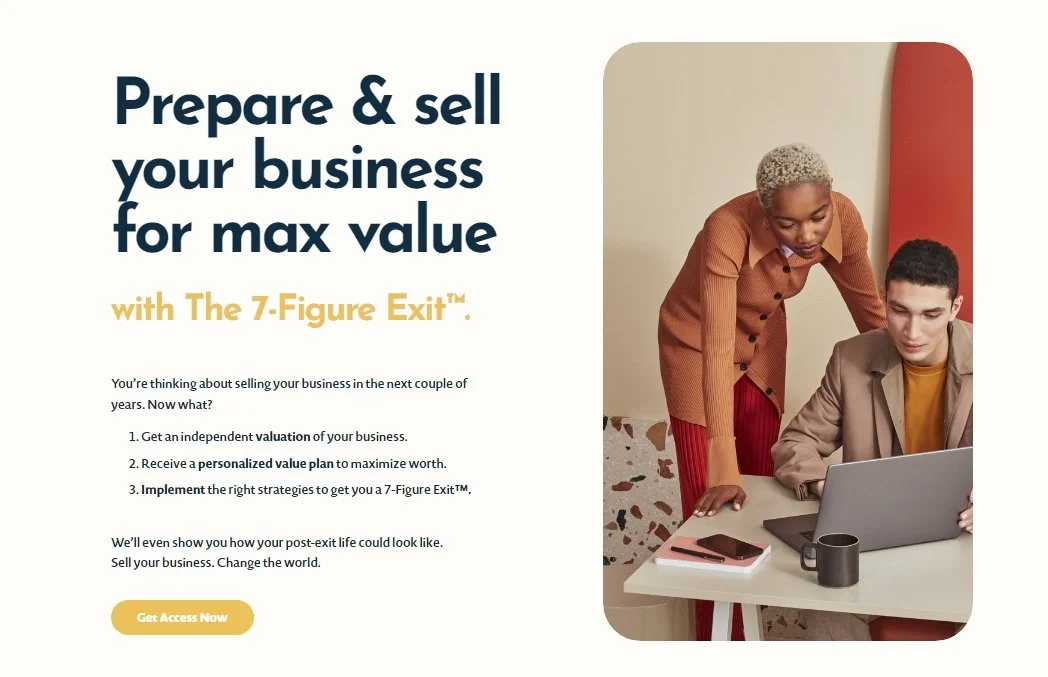3 Steps to Turn A Personal Brand into a Business Asset
As a small business owner, you’ve poured your heart and soul into building a personal brand that resonates with your audience. But have you ever wondered how you can transform this personal brand into a business asset that can thrive without your constant presence? Many entrepreneurs struggle with this transition, but it’s crucial for achieving long-term success and freedom. Today, I’ll walk you through three essential steps to elevate your personal brand into a scalable, sellable business asset.
Step-by-Step Guide to Selling Your Brand
Step 1: Trust in Systems, Not Just Faces
Automate your business processes
Create comprehensive standard operating procedures (SOPs)
Delegate responsibilities to a capable team
Step 2: Bring in New Faces
Introduce new experts and personalities to your audience
Showcase the skills and expertise of your team members
Diversify your content with guest contributions
Step 3: Make Your Offers the Star
Focus on promoting your products and services, rather than your personality
Develop a strong, recognizable brand identity for your business
Ensure your offerings can stand alone, independent of your personal brand
Step 1: Trust in Systems, Not Just Faces
To elevate your personal brand into a business asset, start by building reliable systems that can operate without you. Automation and detailed SOPs are critical.
Practical Tips:
Automate Processes: Use tools and software to automate repetitive tasks like email marketing, invoicing, and customer support.
Create SOPs: Document every process in your business. This not only ensures consistency but also makes it easier to train new employees.
Delegate: Hire a capable team and empower them to make decisions. Trusting your team frees up your time to focus on strategic growth.
Read my 2 blog posts on the positive impact your team has on the value of your business: How Your Team Can Triple Your Exit Price, and How Remote Teams Impact Business Valuations.
Step 2: Bring in New Faces
Introducing new experts and personalities helps diversify your brand and reduces dependency on you. This transition is vital for scaling your business.
Practical Tips:
Hire Experts: Bring in specialists who can help your clients get results
Showcase Your Team: Highlight your team’s achievements and expertise in your content. Let your audience see the faces behind the brand.
Guest Contributions: Invite guest experts to contribute to your blog, podcast, or videos. This not only enriches your content but also introduces fresh perspectives.
Personal Story:
When I began featuring my team in webinars and articles, I noticed a positive shift. Clients started trusting the brand, not just me. This change was pivotal in scaling my business.
Step 3: Make Your Offers the Star
Ensure your products and services can stand alone. Focus on building a brand identity that emphasizes the value of your offerings.
Practical Tips:
Promote Your Products: Create marketing campaigns that highlight the benefits, features and results of your products or services.
Brand Identity: Develop a strong, consistent brand identity that resonates with your audience. Use logos, colors, and messaging that reflect your business values.
Independent Offers: Design your offerings to be compelling on their own, without needing your personal brand to sell them.
Expert Advice:
Michael Hyatt successfully transitioned from a personal brand to a business brand by focusing on his products. He rebranded his business from Michael Hyatt to Full Focus and emphasized the value of his company’s products (like planners and productivity tools).
How I Scaled My Services Beyond Me
As a small business owner, I've experienced feeling overwhelmed with client work for half a decade. I eventually took the decision to transform my small venture into a scalable business, helping it grow beyond my personal capacity, and providing freedom and the opportunity to sell or exit when ready.
Transitioning to a system where others handle client work can be challenging due to control, trust, and fear of becoming less needed. In this article I share with you how I successfully scaled my services. Read to full article here.
Success Story: Jennie’s Transformation
Jennie, an agency owner, transitioned from a personal brand to a thriving digital marketing agency. By automating processes, featuring her team and their skills, and focusing on the business’s services and results, Jennie scaled her business to 2 million and made it exit-ready.
Interactive Element: Your Transition Challenge
Now it’s your turn. Reflect on these steps and take action:
Identify one process to automate this week.
Introduce a team member to your audience in your next piece of content.
Develop a marketing campaign that highlights a product or service, independent of your personal brand.
Implement these actions over the next months and watch how your business evolves from a personal brand to a sellable asset.
To a brighter, freer entrepreneurial future!



